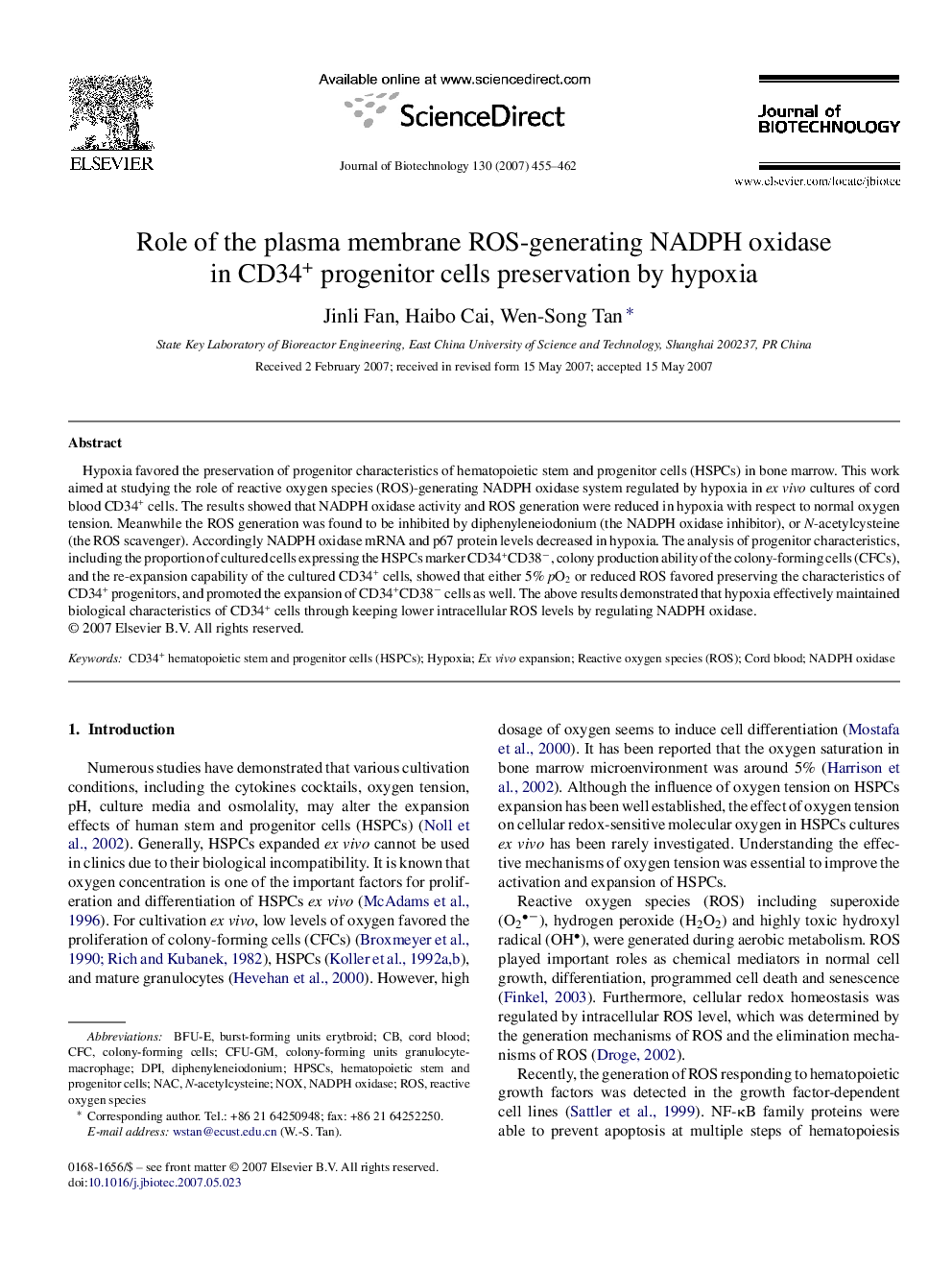| Article ID | Journal | Published Year | Pages | File Type |
|---|---|---|---|---|
| 25200 | Journal of Biotechnology | 2007 | 8 Pages |
Hypoxia favored the preservation of progenitor characteristics of hematopoietic stem and progenitor cells (HSPCs) in bone marrow. This work aimed at studying the role of reactive oxygen species (ROS)-generating NADPH oxidase system regulated by hypoxia in ex vivo cultures of cord blood CD34+ cells. The results showed that NADPH oxidase activity and ROS generation were reduced in hypoxia with respect to normal oxygen tension. Meanwhile the ROS generation was found to be inhibited by diphenyleneiodonium (the NADPH oxidase inhibitor), or N-acetylcysteine (the ROS scavenger). Accordingly NADPH oxidase mRNA and p67 protein levels decreased in hypoxia. The analysis of progenitor characteristics, including the proportion of cultured cells expressing the HSPCs marker CD34+CD38−, colony production ability of the colony-forming cells (CFCs), and the re-expansion capability of the cultured CD34+ cells, showed that either 5% pO2 or reduced ROS favored preserving the characteristics of CD34+ progenitors, and promoted the expansion of CD34+CD38− cells as well. The above results demonstrated that hypoxia effectively maintained biological characteristics of CD34+ cells through keeping lower intracellular ROS levels by regulating NADPH oxidase.
